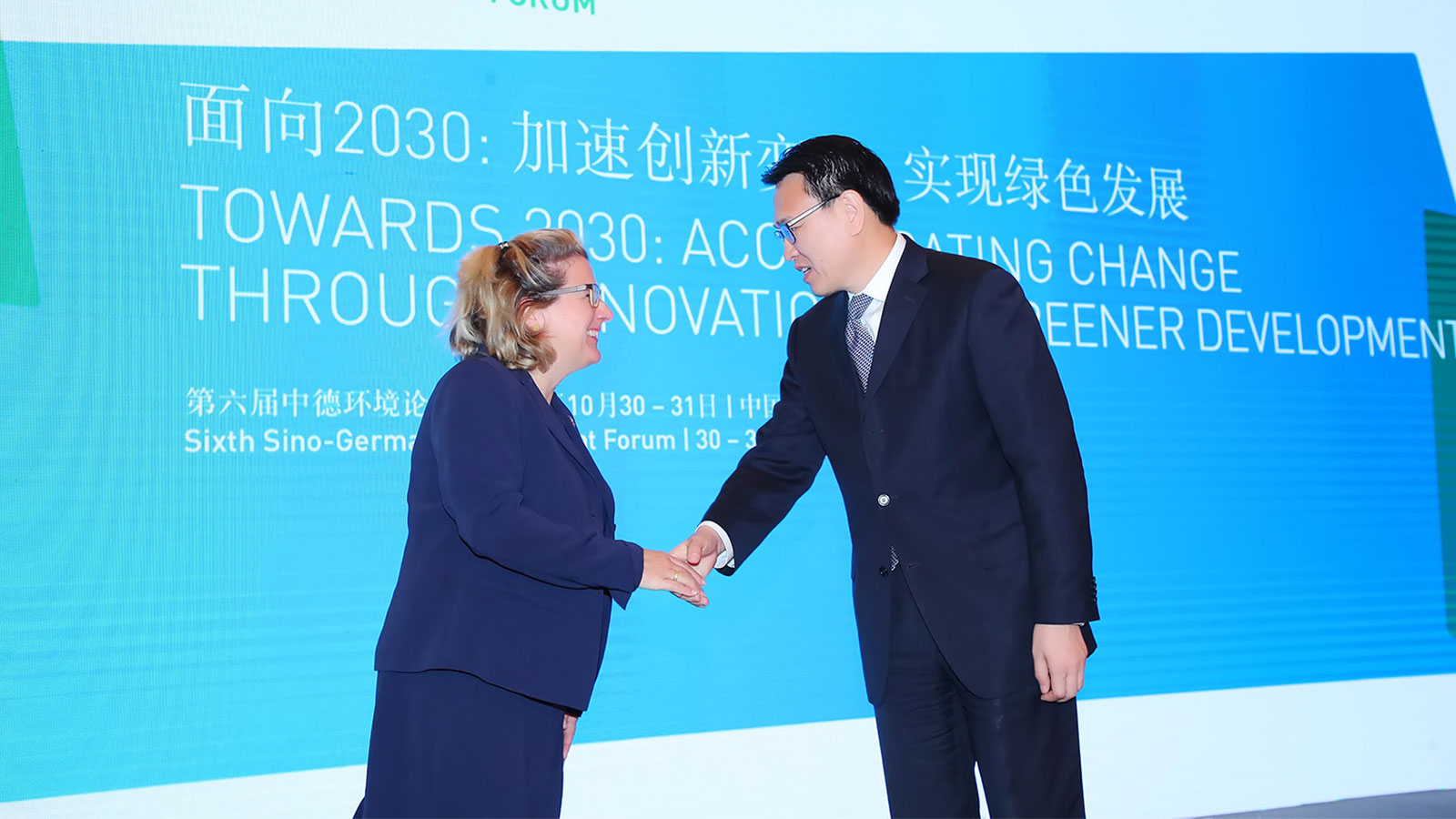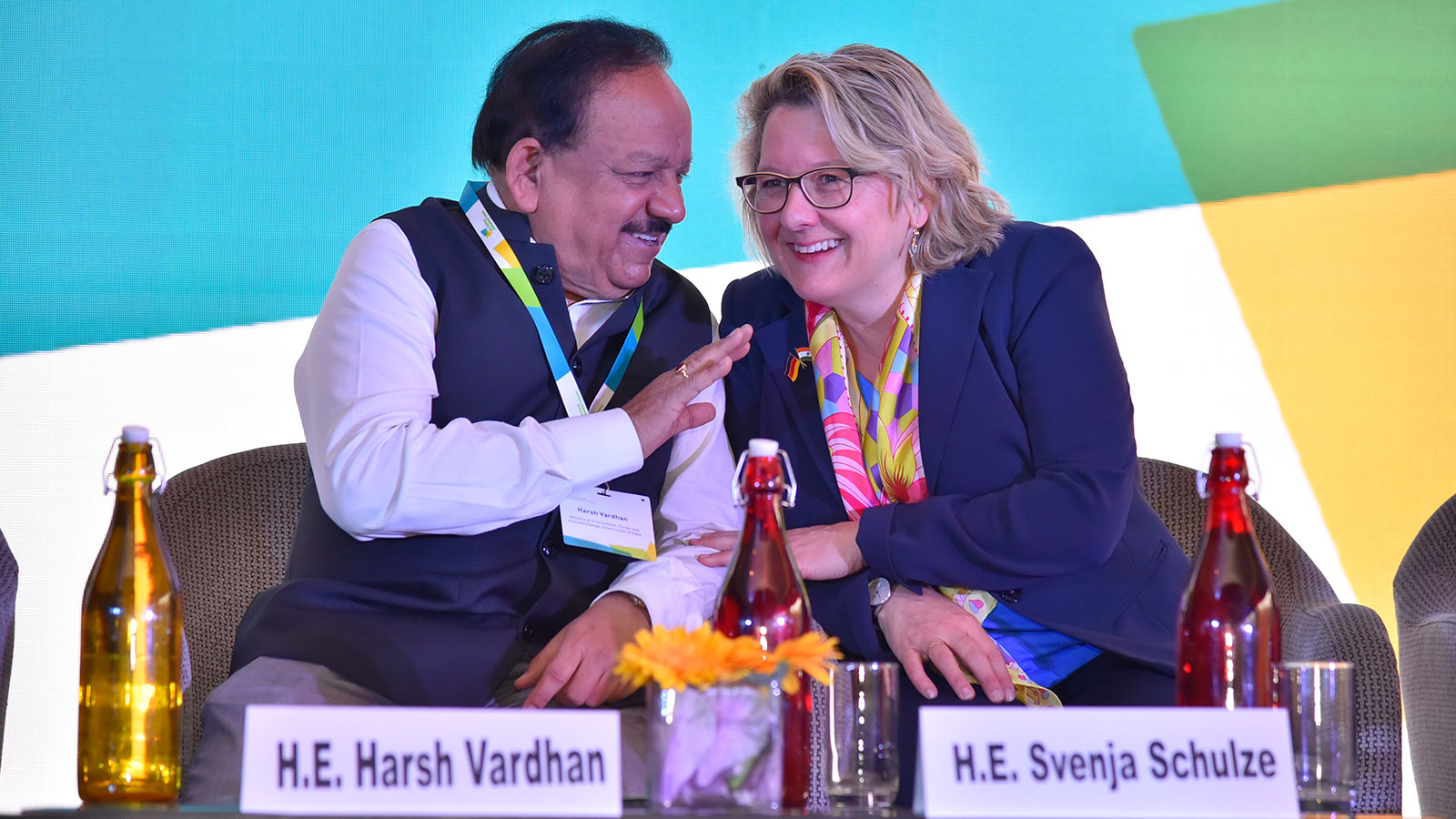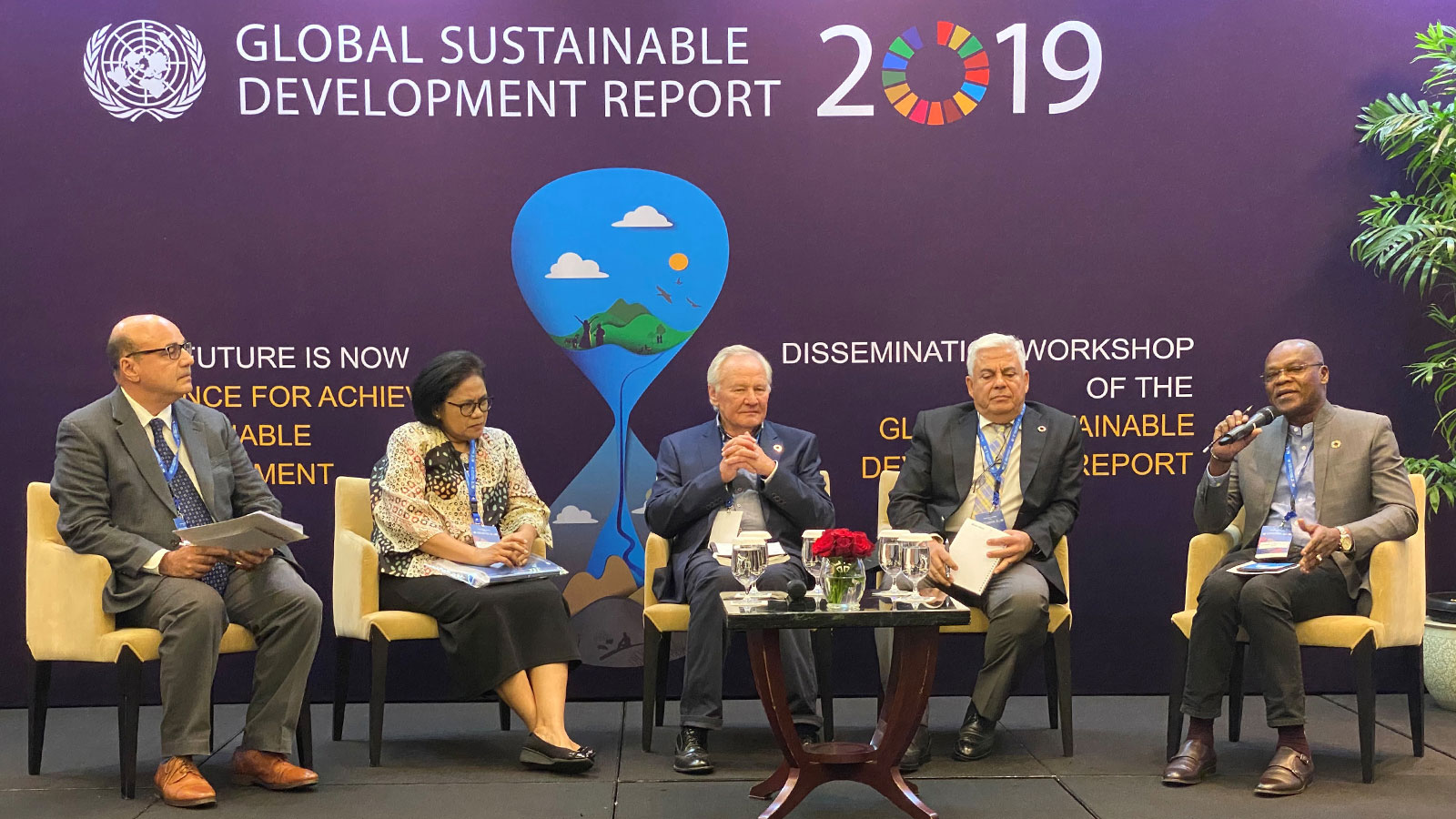Strategic Environmental Dialogues
Objectives
- Germany’s cooperation with individual countries and within international policy processes, such as the climate and biodiversity negotiations, are strengthened and contribute to a sustainable transformation of the global economy
- Support consensus-building on key issues in international processes on climate and environmental policy
- Enable inter-sectoral exchanges on crosscutting issues within the climate and environment policy realm, thereby support breaking down silos
- Promote bilateral and international exchange on an environmental-friendly and inclusive low-carbon economy
Description
Practically all industrialised countries and emerging economies are facing the same overarching challenge: achieving the decarbonisation of the economy under the stated climate and environmental goals. Especially large emerging and developing economies such as China, India, Indonesia, Argentina and Brazil account for a globally significant share of resource consumption and greenhouse gas emissions. Here a massive concerted effort to raise ambition and consistent implementation is required. This can be tackled most efficiently together by means of international cooperation.
With the 2030 Agenda for Sustainable Development and the Paris Climate Agreement, the international community has put forward an ambitious vision that forms a blueprint for international cooperation. The project Strategic Environmental Dialogues supports the BMU in its climate and environmental cooperation framed by the international agendas with major emerging and developing economies. In addition to policy advice, it assists in the implementation and organisation of high-level bilateral environmental forums and regional and international conferences, and designs and implements capacity-building measures.
In addition to policymakers, key stakeholders from industry, academia and civil society take part in the various dialogue forums. The aim is to promote bilateral and international exchange on an environmental-friendly and inclusive low-carbon economy, and thereby support consensus-building on key issues in international processes on climate and environmental policy.
Approach/Field of intervention
- Capacity Building
- Track II Dialogues
- Environment Fora
- Regional Conferences
- (virtual) Study Tours
- Expert Exchanges
- Delegations
- Policy Briefs
Targeted beneficiaries
The project focusses on high- and mid-level decision makers within relevant ministries and other key stakeholders in the focus countries. As the objective of the project is to support consensus-building on key issues in international processes on climate and environmental policy, the targeted beneficiaries are quite broadly defined and cannot be identified as one single group.
Highlight activities /Achievements
- The project designed and implemented a Green Recovery Academy in Central America in 2021. The aim of the Academy was to support sustainable economic recovery after the COVID 19 pandemic by building knowledge and resources and sharing regional experiences. Over a period of two months, more than 60 participants from the public and private sectors, civil society organisations and academia intensively engaged with approaches to green recovery in virtual formats on a weekly basis.
- In November 2020, a virtual regional workshop was held to disseminate the key messages of the Global Sustainable Development Report (GSDR) 2019. The report shows the current status of implementation of the Sustainable Development Goals (SDGs) and provides guidance on sustainable development and transformative development pathways.
- The successful cooperation with the United Nations System Staff College (UNSSC) and the German Development Institute (DIE) was continued in 2020, following the implementation of the Sustainable Leadership Academy in Brazil in 2019. In 2020, a regional training of trainers in Asia was successfully implemented as an online training on national climate change contributions (NDCs) and SDGs, Leave no one behind in COVID-19 measures and digitalisation in the context of the 2030 Agenda. The Federal Environment Agency also made important contributions on the topic of digitalisation. A total of 30 participants from 14 institutions from six countries of the Managing Global Governance Network took part.
- In 2019 the sixth Sino-German Environment Forum under the chairmanship of Federal Environment Minister Svenja Schulze and Chinese Vice-Minister of the Environment Zhao Yingmin in October 2019 set a new focus on biodiversity conservation, among other topics.
COUNTRY
ASIA , Caribbean , Latin America
DURATION
01 January 2014 - 28 February 2023






